Why Do Cats Make Biscuits? Veterinarians Weigh In

Cats are interesting creatures, to say the least: That means they often do things we don’t quite understand. From delivering dead mice as gifts to running around at night with the zoomies, there’s no shortage of strange behaviors pet owners get to experience from their feline friends. But why do cats make biscuits? Read on to learn more about this habit, and find out what it really means when your cat starts kneading.
RELATED: 8 Cats That Don’t Shed, According to Veterinarians.
What Is “Making Biscuits”?
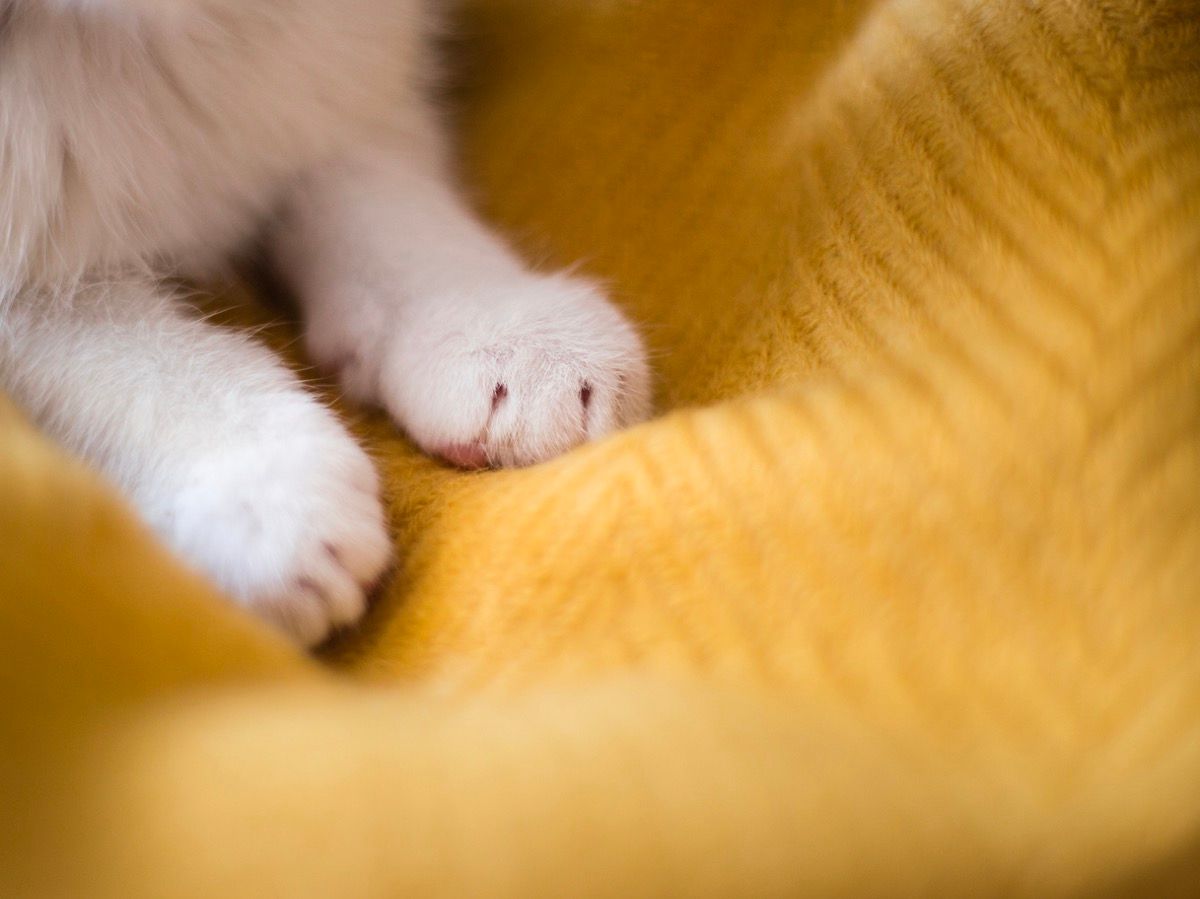
“Making biscuits” refers to a common behavior seen in cats that is also known as kneading.
“This is where they push their paws in and out against a soft surface, often alternating between left and right,” says Kathryn Dench, MA VetMB, a holistic and integrative veterinarian and chief Scientific Advisor at Paw Origins. “It is reminiscent of the way a baker kneads dough, hence the name.”
Why Do Cats Knead?
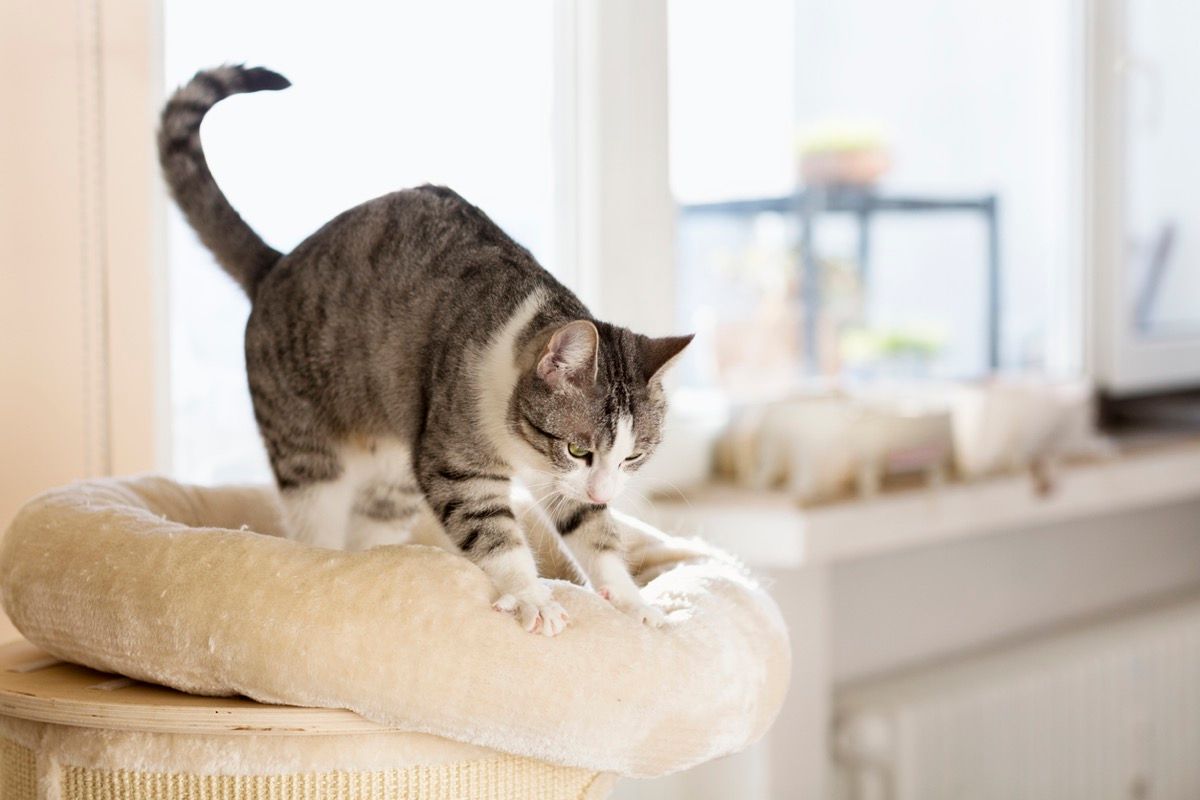
There is not one singular reason as to why cats knead. Instead, this behavior can occur for a number of different reasons. Here are four possible explanations for why your feline friend is making biscuits.
1. They’re acting out of instinct.
Cats first start kneading as kittens.
“It is how they stimulate milk production from mom when they are nursing,” explains Mikel Delgado, PhD, certified applied animal behaviorist and cat behavior expert with Rover.
So, some cats may simply be doing this out of instinct from their younger years.
“Adult cats often continue to do this behavior, even though they are no longer nursing,” Delgado says.
2. They’re marking their territory.
Kneading also helps cats mark their territory—whether that’s on a person or in a particular area. This is because “cats have scent glands between their toes,” according to Preston Turano, DVM, veterinarian and veterinary spokesperson at Felix Cat Insurance.
“When cats knead on something, their scent is deposited on it from the glands between their toes to ‘mark’ it,” Turano shares.
3. They’re preparing to go to sleep.
If you feline friend is getting sleepy, you might notice them start kneading, too. They do this in order to “prepare their bed,” according to Turano.
“Kneading can create a warm and comfy spot to rest,” he notes.
4. It feels good.
Making biscuits is often “associated with relaxation and contentment,” Dench says. “It can be a sign that your cat feels safe and happy in its environment.”
Stephen Quandt, certified feline training and behavior specialist, confirms that kneading is sometimes simply a soothing act for cats.
“They may do it just to feel good, and to stretch their muscles and tendons,” he says.
RELATED: 29 Fun Cat Facts You Never Knew About Your Furry Friend.
Where Do Cats Typically Make Biscuits?
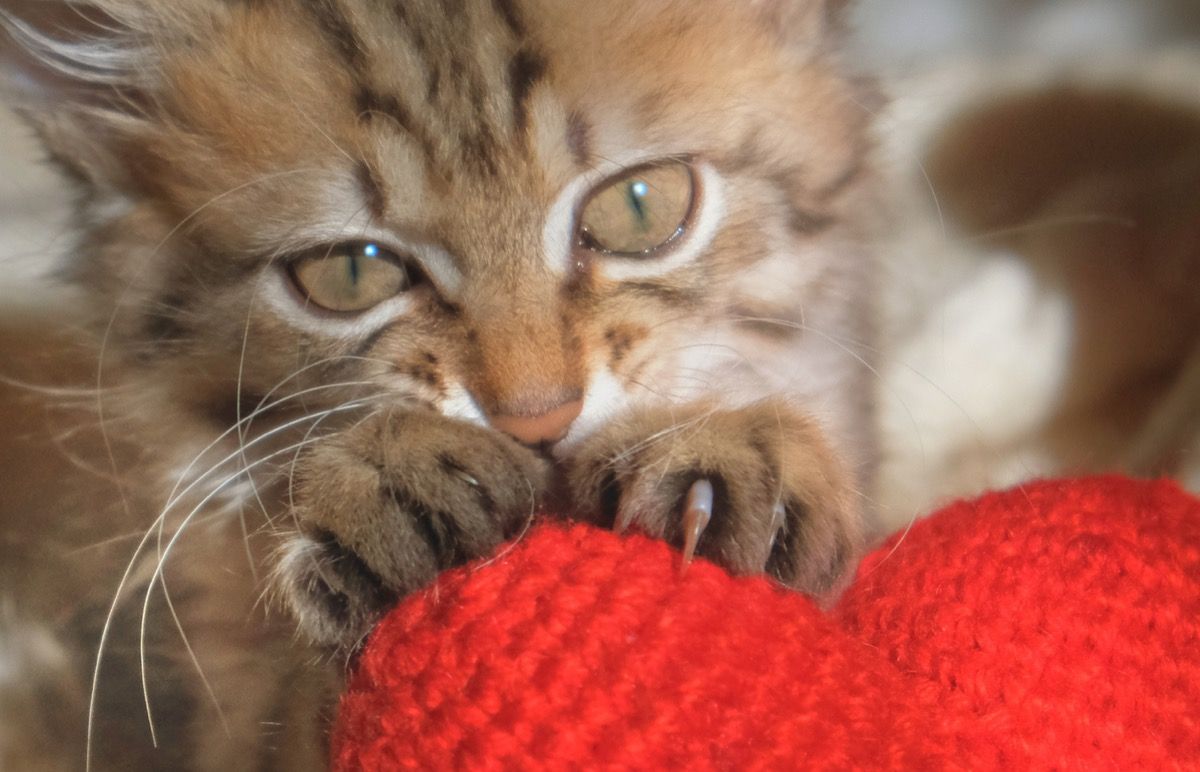
When it comes where they knead, cats typically search for “soft, pliable surfaces that provide comfort,” Dench says. This may include things like blankets, pillows, or even their owner’s lap.
“The choice often depends on where your cat feels most secure and content,” she notes.
But if your feline friend normally stays outside, you might notice them making biscuits elsewhere before going to bed.
“Cats in the wild have been observed kneading grassy areas prior to sleeping,” Quandt shares.
What Does It Mean When a Cat Makes Biscuits on You?
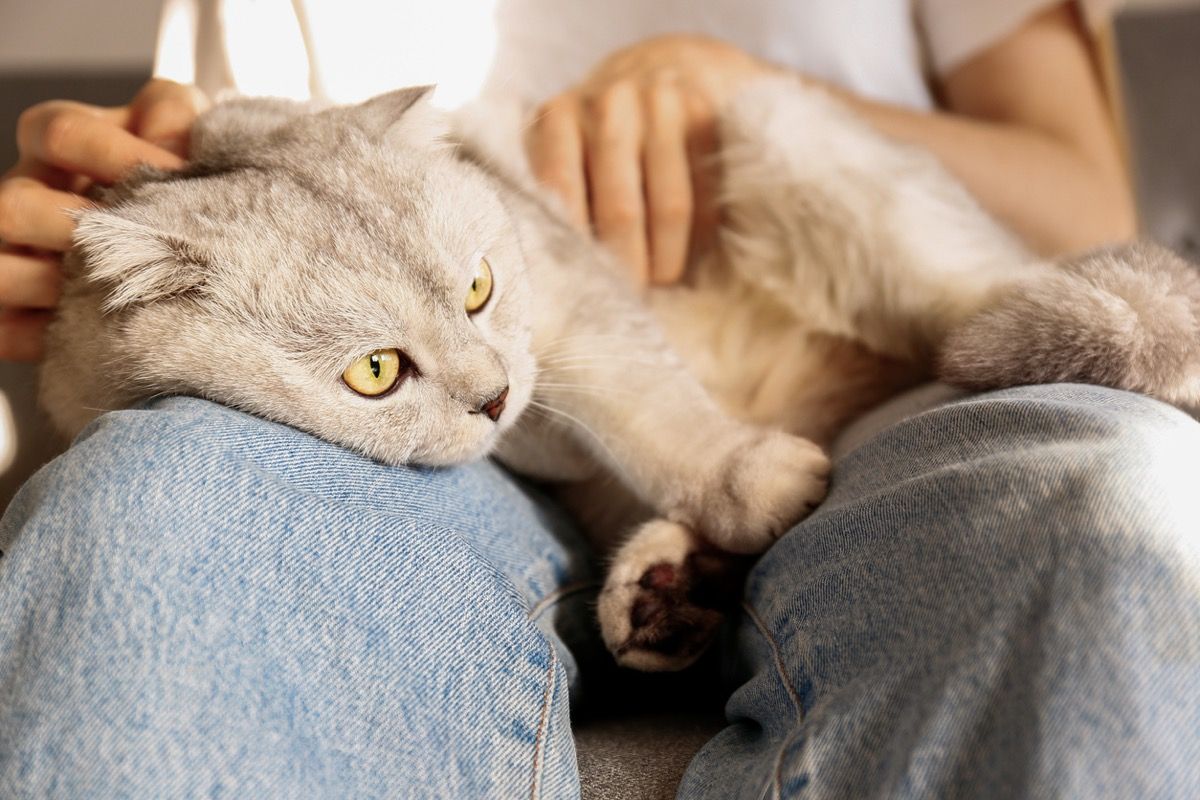
Making biscuits is also a bonding behavior for cats. When they knead as kittens, it “stimulates their mom to release oxytocin—which is a social bonding hormone,” Quandt explains.
So when they become adults, cats might knead on a person—particularly on their belly—to show that “they care about that person and want to bond with them,” he says.
“When a cat kneads on you, it’s generally a sign of affection and comfort,” Dench confirms. “It indicates that your cat feels safe and secure with you, associating your presence with the comfort and care they received as a kitten from their mother.”
RELATED: 5 Secrets Veterinarians Aren’t Telling You About Your Cat.
Is Making Biscuits Ever a Sign of Distress?
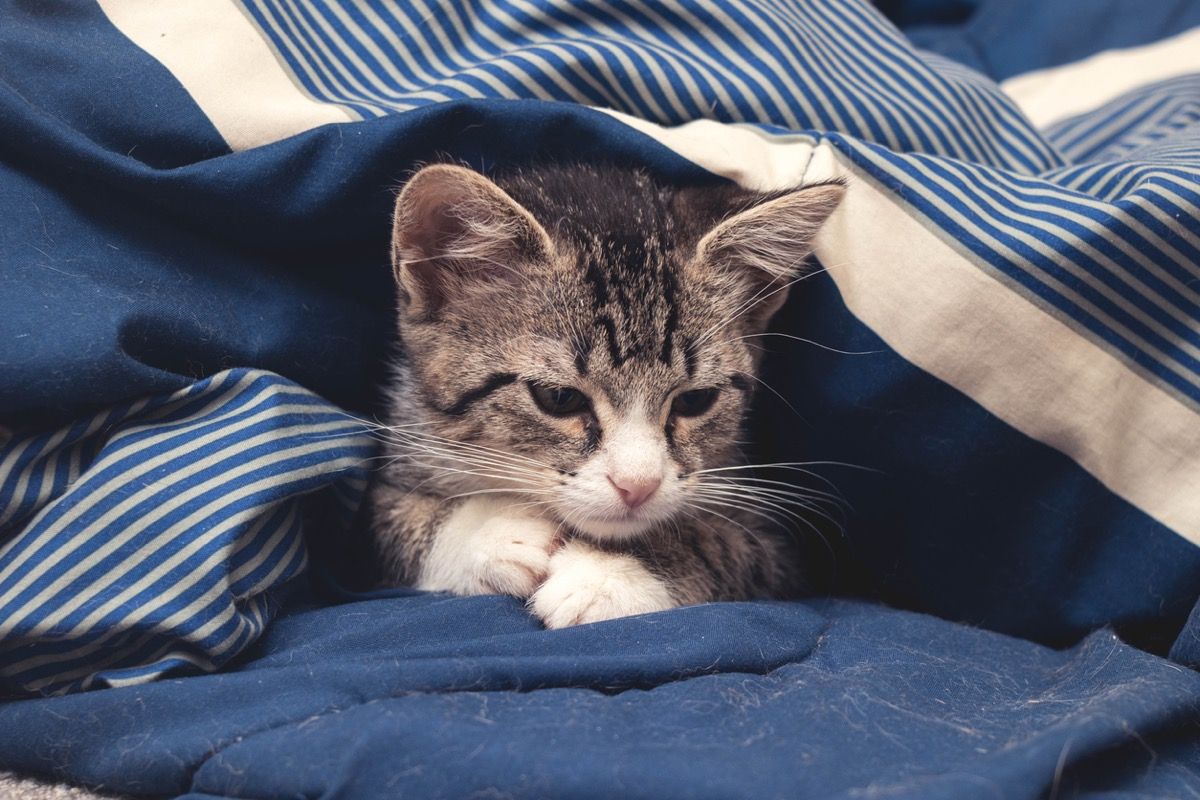
Kneading is most often “considered a positive behavior,” according to Delgado. “But it is possible that some cats might knead when they are stressed to comfort themselves,” she cautions.
With that in mind, it’s important for pet owners to watch out for any signs of excessive kneading, “especially if it is accompanied by unusual vocalizations or behaviors,” Dench says. This can indicate that your cat is in distress or pain.
“If you notice any changes in how frequently or intensely your cat kneads, it might be worth a visit to the vet to rule out any underlying issues,” Dench advises.
Keep in mind that it’s not always a bad sign if your cat is working overtime to make biscuits.
“If your cat is otherwise comfortable, relaxed and performing typical kitty behaviors (like playing, scratching, hanging out with you, eating, and using the litter box), we aren’t too worried about excessive kneading,” Delgado says.
RELATED: Is Pet Insurance Worth It? Understand the Pros and Cons.
How to Stop Cats From Kneading
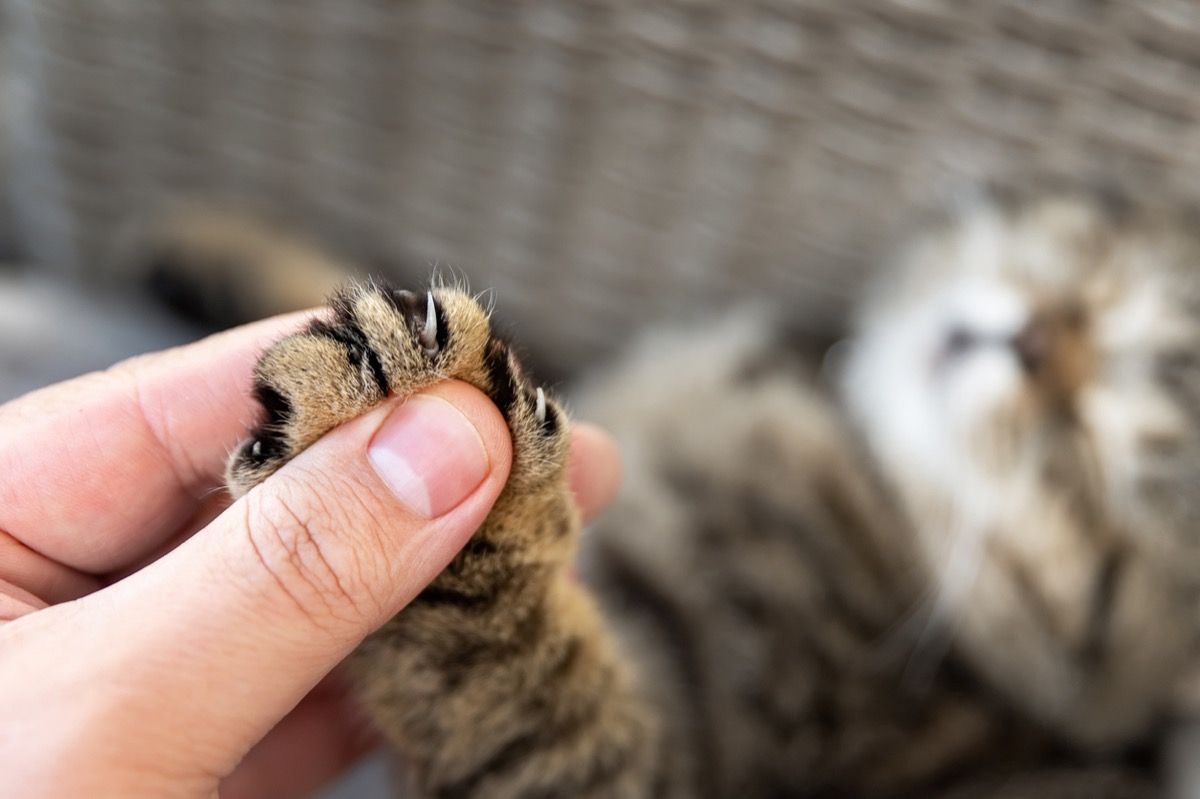
Making biscuits is a “normal, instinctual behavior that should generally be encouraged as it signifies a relaxed and happy cat,” Dench tells Best Life. But if the behavior is becoming problematic or destructive, you can always try to dissuade them from kneading on certain surfaces or in particular ways by offering alternative options.
“Redirecting the behavior rather than stopping it entirely allows your cat to express this natural instinct in a less disruptive way,” Dench explains.
Try plush toys, pillows, cat trees, or dedicated cat beds and blankets if you want to redirect their kneading efforts.
“Also, if your cat likes to knead on you and it’s painful, try placing a soft blanket on your lap, and keeping your cat’s nails trimmed,” Delgado suggests.
Wrapping Up
That’s it for our expert-backed guide on why cats make biscuits. Be sure to check back with us soon for more insight on cat behavior and other useful pet content that can help keep you and your furry friends happy and healthy.